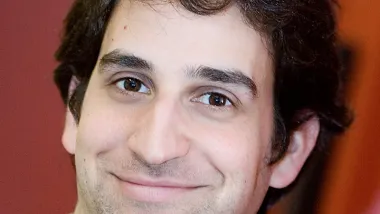Just after 2008 began, I realized my profession of choice was dying. I’d spent the previous seven years at Philadelphia Weekly, a fairly typical alternative newspaper: you know, magazine-style lefty bent, where-to-go-and-what-to-do listings, porn ads in the back. The usual.
Just after 2008 began, I realized my profession of choice was dying.
I'd spent the previous seven years at Philadelphia Weekly, a fairly typical alternative newspaper: you know, magazine-style lefty bent, where-to-go-and-what-to-do listings, porn ads in the back. The usual.
I'd worked primarily as an editor, but covered a wide range of topics as a writer--some more planning-related than others. Our page counts--a good indicator of any paper's fiscal health--fluctuated with the economy, and we'd known print journalism was in trouble for a while. (Thanks, Internet! Especially you, blogs!) But the bottom seemed to fall out pretty suddenly. When our page counts tanked just after the new year, it occurred to me I should maybe have a plan B.
A week and a half later, I was taking the GRE.
At the paper, I was always the guy suggesting story ideas like, "How about if we pick six vacant architectural treasures along Broad Street and write how they could best be brought back to life?" (My editor repeatedly passed on that story; I still maintain it would be a winner.) But it wasn't until the last year or two that I realized the topics that excited me most as a writer had not only a name, but a field and profession.
And so next week is the official start of my master's program in city planning at the University of Pennsylvania.
I've long been married to Philadelphia, and I knew Penn well from my days as an undergrad, so the school selection was a no-brainer. The program, they told us, was supremely focused on coming up with real-world solutions to actual problems.
So instead of just writing about the problems of the city I love, I get to actually solve them? Perfect.
Luckily, an old mentor was able to take my vague description of my interests ("I really like figuring out the best way urban spaces can be used") and define it as a concentration ("So you want to do urban design"). Once the tuition deposit was in, it was just a matter of teaching myself statistics over the summer (because Penn said so), reading whatever Jane Jacobs chapters I'd missed as an undergrad (because I said so), and quitting my job. My classmates' summers were pretty similar.
We're just finishing up our two-week "bootcamp," in which we had statistics review, learned spreadsheet modeling, got a crash course in a mess of graphics applications, and learned basic sketching, drafting and planning techniques in an introduction to urban design. It's been a good baptism by fire, and just a hint of the lack of sleep and free time we can look forward to over the next two years. The material looks challenging, time-consuming, and, well, kind of awesome.
The biggest debate in newspaper circles these days is how long--10 years? 15?--the print product will continue to exist as we know it. On the flipside, one of the intro articles Penn gave us was my academic advisor Jonathan Barnett's "Smart Growth in a Changing World," in which he says the number of urbanized counties in the U.S. will nearly double by 2050, from 444 to 797.
Which profession would you choose?

Planetizen Federal Action Tracker
A weekly monitor of how Trump’s orders and actions are impacting planners and planning in America.

Chicago’s Ghost Rails
Just beneath the surface of the modern city lie the remnants of its expansive early 20th-century streetcar system.

Amtrak Cutting Jobs, Funding to High-Speed Rail
The agency plans to cut 10 percent of its workforce and has confirmed it will not fund new high-speed rail projects.

The French Solution to Congested Tunnels: Make Them Car-Free
Bay Area transportation officials keep expanding car capacity. Lyon’s Croix Rousse Tunnel offers a different way.

Missouri Governor Reverses Anti-Discrimination Housing Policies
A new state law bars cities from prohibiting source-of-income discrimination against tenants using Section 8 housing vouchers.

USDOT Launches Unfunded 'SAFE ROADS' Program
The program targets “distractions” and “political messages or artwork,” and paves the way for autonomous vehicles.
Urban Design for Planners 1: Software Tools
This six-course series explores essential urban design concepts using open source software and equips planners with the tools they need to participate fully in the urban design process.
Planning for Universal Design
Learn the tools for implementing Universal Design in planning regulations.
City of Fort Worth
planning NEXT
Mpact (founded as Rail~Volution)
City of Camden Redevelopment Agency
City of Astoria
City of Portland
City of Laramie




























